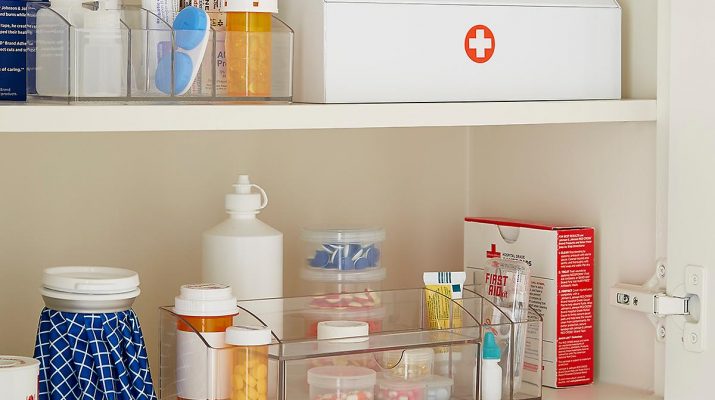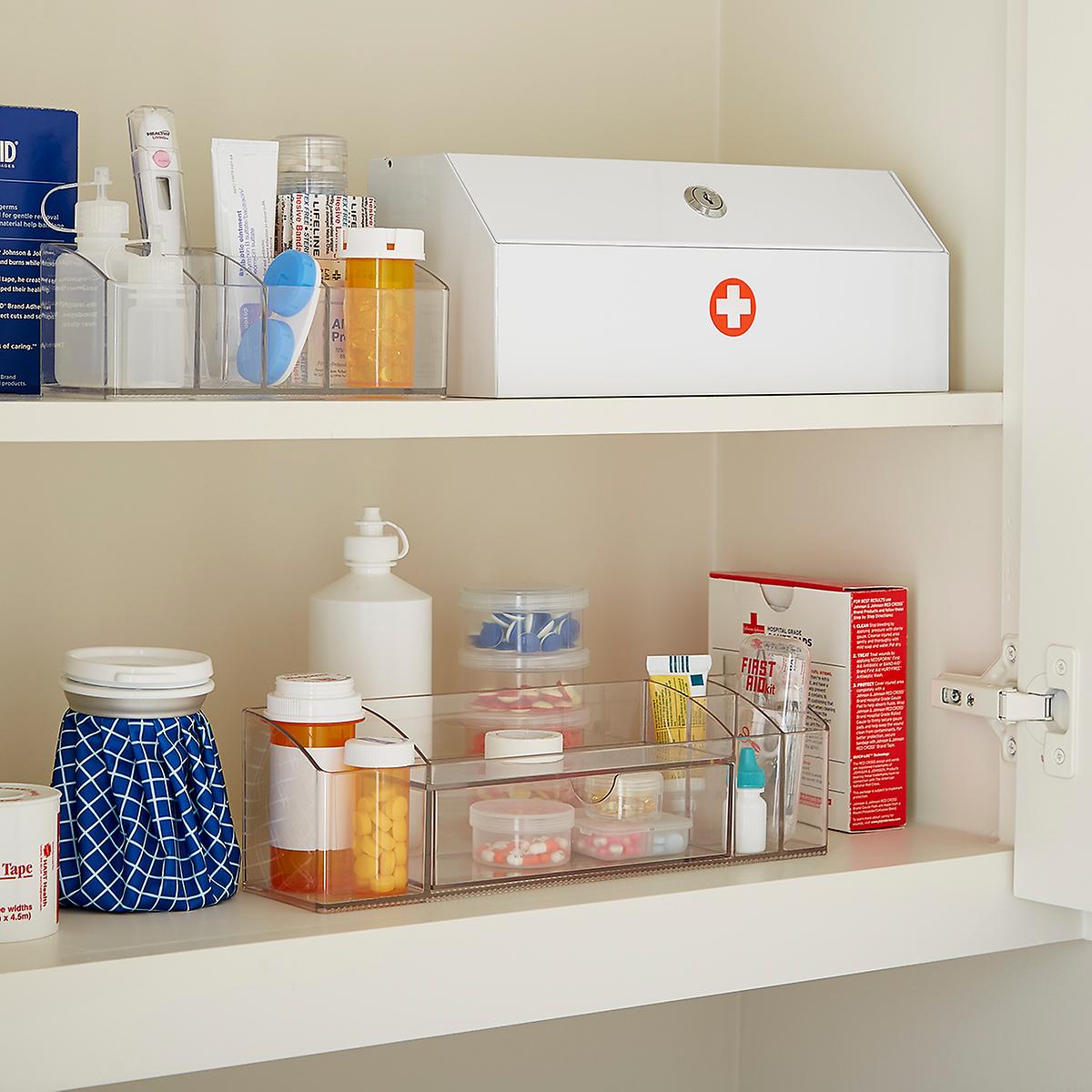If you are on a mission to live an organized life, you have probably been busy decluttering your house. Talking about decluttering, what about your medicine cabinet?
Although it might not be on top of your priority list, giving it a good overhaul will benefit your sanity and health.
An organized medicine cabinet simplifies your morning and detangle your nights.
– Because you won’t have to hunt down the things you need daily.
If this is still not enough to convince you into managing your medicine cabinet. Keep reading.
Today, in this article, we will talk about the benefits of managing your medicine cabinet and share tips to manage it effectively.
Why Is Managing Medicine Cabinets Important?
Management of the medicine cabinet ensures that you get all your medicine on time. It helps you declutter the box and remove unwanted medicine.
We have seen many cases where people get confused about which medicine to take when unnecessary medicine is in the medicine cabinet.
Managing your medicine cabinet from time to time helps you remove all the unwanted things that are taking up useful places which could have been used to stash up important products and medicine.
How To Manage Your Medicine Cabinet?
A well-organized medicine cabinet offers convenience when it comes down to accessing important medicine when you need them the most.
Although most people keep their medicine cabinet in the bathroom, you don’t have to do the same. You can install them anywhere. If you feel like your bedroom is the right place and easily accessible, installing in the bedroom works just fine.
When you keep all your medicine in one, it certainly helps you find them easily. But if they are used to just keeping anything, you might end up stocking unnecessary medicines.
Here are the steps to help you effectively manage your medicine cabinet.
Step 1: Gather All Your Medicine
The recent consumer reports show that Americans are taking more medicine today than they have ever taken. And this report only shows the prescribed medicine.
Then, what about the over-the-top medicine people take for headaches, mild burns, and allergies.
If all your medicines are counted for, it is a lot of medicine. Managing them can really be challenging—especially the non-prescribed ones.
The best way to manage them is to gather them in one place and then segregate them according to their needs. Stash them in different compartments of the medicine cabinet so that you do not get mixed up.
Step 2: Throw Away The Old Medicine
– Enough with stocking all the medicine you have ever been prescribed.
All medicines have an expiration date, and there is no point in keeping expired medicine in your medicine cabinet.
Go through the cabinet and see which medicine has expired. If you find any, dispose of them immediately. If you find a medicine with no dates and do not remember when you have purchased it, lay it safe and get rid of it as well.
Step 3: Clean Up The Medicine Cabinet
It is important to keep your medicine in a clean space. You may be keeping things like bandages, gauze, and cotton swabs with medical supplies. You would like to be in a clean place.
Clean your medicine cabinet regularly to ensure all your other medicines do not affect the unclean cabinet.
Step 4: Stock Up The Medicine Cabinet Basics
While you are rearranging your medicine cabinet, it is good to stock it up with some necessary medicines. Here is the shopping list.
- Antibiotic cream.
- Antacid.
- Cold pack.
- Gloup swallowing gel.
- Petroleum jelly.
- Sunscreen.
- Cotton ball & swabs.
Step 5: Be Smart About Medicines
It is important that you complete your medical process. Do not forget the finish of the course of antibiotics your doctor has prescribed – even if you begin to feel better, complete the course so that the infection doesn’t return.
Furthermore, stock only those medicines that are really necessary. For instance:
- Cold.
- Cough.
- Fever.
- Burns.
- Cuts.
Keep Track Of All The Supplies!
Once you have cleared the medicine cabinet and have filled it with the new supplies, the only thing left is to keep track of everything you have in the cabinet. It is better to repeat this process at every three-month interval to discard any expired medicine and order refills if needed.


